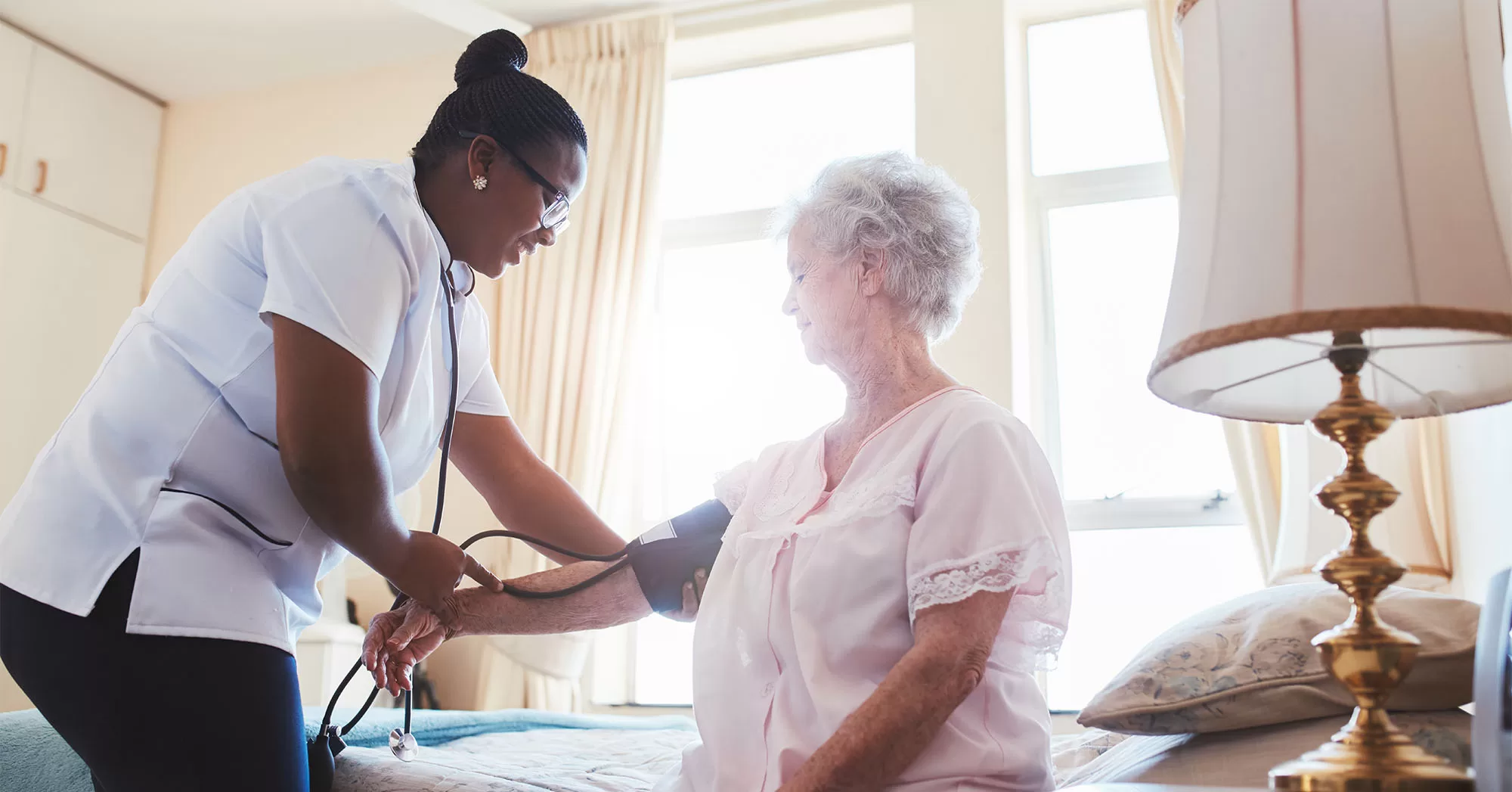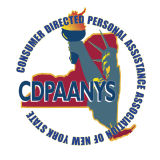October is Health Literacy Month, and we at True Care are excited to talk about what health literacy is and how it applies to home care. While, at a bare-bones level, health literacy is about having the tools to understand health-related information, there is so much more to it that can help make your home care experience, either as a client or a caregiver, that much better. Let’s delve into what exactly health literacy is, and what makes it a key component of quality home care.
What Is Health Literacy?
Health literacy is, at its most basic, the ability to make informed health-related decisions. It’s about understanding health information, the instructions of healthcare providers, and navigating health-related services.
The Three Basic Aspects of Health Literacy: There are three pillars of health literacy that cover most of its applications to personal health. These are:
Understanding Health Information: Imagine reading a book in a language you don’t know. It’s like trying to grasp something without the right tools. Health literacy equips you with those tools, so you can fully understand health information. Whether it’s a doctor’s report, a medication label, or a pamphlet on a new treatment, health literacy enables you to read and interpret these materials effectively.
Deciphering Healthcare Provider Instructions: Have you ever received a set of instructions that seemed like a puzzle? Healthcare providers often provide guidance on medications, treatment plans, and lifestyle changes. Health literacy is your decoder, helping you make sense of these instructions. It ensures that you can follow the advice given by your healthcare team correctly.
Navigating Healthcare Systems and Services: Think of health-related services as different routes you can take on your journey to better health. Health literacy is your GPS system, guiding you to the right services. This could include understanding the options for your care, knowing which specialist to see, or being aware of the support services available to you.
Why Is Health Literacy Important?
Health literacy is crucial because it ensures that you can:
- Understand your health conditions and treatment options
- Communicate effectively with your healthcare team
- Follow medication instructions and care plans accurately
- Make informed decisions about your health
Imagine you’re on a cross-country road trip. You have a detailed map, you understand the road signs, and you know how to operate your vehicle. In this scenario, you’re in control, confident, and able to make informed decisions about where to go, when to stop, and how to get there safely.
Now, imagine the same road trip without that map and knowledge. You’re in the dark, unsure of your next move. You may miss crucial exits, run out of gas, or take wrong turns. This lack of information can lead to confusion, frustration, and even danger.
In the context of healthcare, health literacy is like that trusty map and the knowledge of how to use it. It empowers you to be in control of your health journey, just like you’d be in control of your road trip.
It’s about ensuring that you don’t feel lost or overwhelmed when making decisions about your health. Health literacy helps you be a proactive participant in your healthcare, asking questions, making informed choices, and taking charge of your well-being.
Tips to Increase Your Own Health Literacy
Now, let’s talk about how you, too, can boost your health literacy:
Ask Questions: Don’t hesitate to ask your healthcare provider for explanations if you don’t understand something. They’re there to help. Most providers will be able to send you home with pamphlets or other literature to help you increase your knowledge of your health conditions and learn how to best manage them.
Keep a Health Journal: Write down your symptoms, medications, and any questions you have. It’s a great way to stay organized and remember important details. Bring your journal with you to your appointments so you don’t forget what questions you had for your team. This is a great way to get to know what’s normal for you and your body on your health journey.
Use Reliable Sources: If you look up health information online, stick to trusted sources like the CDC or Mayo Clinic. Beware of misinformation, and stay in those trusted channels. Remember, the medical industry is highly regulated, and most people using scare tactics online are just trying to sell you something you probably don’t need.
Learn Medical Terminology: Familiarize yourself with common medical terms that relate to your condition, including scientific names for body parts like bones and muscles. This can make conversations with your healthcare providers less confusing. However, if your provider is using terms you don’t know or understand, ask them to use simpler language, or teach you the medical terminology.
Learn to Use Your Patient Portals: Most providers these days have an online portal where you can access your health information and message your healthcare team. Take some time learning to navigate the patient portal, which is becoming an ever more important touchpoint between patients and their doctors. If you’re tech-phobic, have a savvy friend or family member sit down with you and show you the ropes. Don’t be intimidated to learn something new!
Bonus–Boost Your Literacy to Boost Your Health Literacy: Many people aren’t able to read and write fluently, and this can greatly impact their health literacy. If this sounds like you, taking steps to improve your fluency with reading and language comprehension can help you better understand written health information. Maybe you live in a country that doesn’t speak your first language, or maybe reading never came naturally to you. Whatever the situation, there are free adult education classes in most cities that can help you bump up your reading and language comprehension skills, and help you improve your health literacy as a direct result.
Ways Home Health Aides Can Help Improve Client Health Literacy
When it comes to home care, health literacy is a game-changer. Home Health Aides can play a vital role in improving their clients’ health literacy. Here’s how:
Clear Communication: Home Health Aides should use simple, easy-to-understand language when explaining care plans and instructions to clients. If you’re a Home Health Aide, don’t be afraid to ask questions of the client’s care team if something is unclear to you.
How It Helps: Using simple language helps avoid confusion, especially if your client has memory challenges or auditory processing difficulties.
Empowerment: Encourage clients to take an active role in their health. Nudge them to ask questions during doctor’s appointments and understand their medical conditions.
How It Helps: By empowering your clients to take an active role in their health, they become an important player on their healthcare team. This can boost their feelings of self-efficacy and autonomy, which can in turn give their mental health a boost.
Visual Aids: Use visual aids like diagrams or drawings to illustrate instructions, making it easier for clients to grasp complex ideas.
How It Helps: By presenting information in multiple ways, you give clients a better chance of absorbing and retaining information. People learn in all kinds of ways; some are more visual while others learn best by listening. Learn your client’s preferences and strengths so that you can present information to them in the best possible way for them.
Resources: Provide clients with reliable sources of health information, such as brochures or websites. Ensure these resources are at an appropriate reading level for their age and education level.
How It Helps: Giving clients educational materials helps them digest information on their own time. They can refer back to things like pamphlets when they have questions or need reassurance, and can even mark them up with questions for their healthcare team.
Active Listening: As a Home Health Aide, one of the most valuable skills you can possess is active listening. This means paying close attention to your client’s concerns and questions. It’s not just about hearing; it’s about truly understanding and acknowledging what your client is saying.
How It Helps: When clients feel heard and respected, they are more likely to open up about their health-related issues and questions. This creates a trusting and supportive environment where you can work together to address their needs and improve their understanding of their health conditions.
Encourage Self-Care: Empowerment is a crucial aspect of improving health literacy. As a Home Health Aide, you can play a pivotal role in this by teaching your clients self-care practices and the importance of following their care plans.
How It Helps: When clients understand how to take care of themselves, they become more independent and better equipped to manage their health. You can show them how to monitor their vital signs, take medications as prescribed, and maintain a healthy lifestyle. This knowledge empowers them to actively participate in their well-being.
Routine Reviews: Regularly reviewing care plans with your clients is like taking out that trusty map and checking if you’re on the right path during your health journey.
How It Helps: Periodic care plan reviews ensure that your clients understand and follow their plans correctly. This is a proactive approach to catch any misunderstandings or difficulties early on, allowing you to make necessary adjustments and prevent potential health issues.
Promote Resources: Being a Home Health Aide means you’re not just a caregiver; you’re also a valuable source of information. Share helpful health literacy resources with your clients and their families. This could be in the form of brochures, websites, or other materials that align with their reading level and needs.
How It Helps: Providing access to reliable health information empowers your clients to learn more about their conditions, treatment options, and self-care practices. You’re not just helping them today; you’re giving them tools to make informed decisions in the future.
Remember, you’re not just providing physical care; you’re supporting your clients on their journey to better health. By actively listening, encouraging self-care, conducting routine reviews, and promoting resources, you’re making a significant impact on their health literacy and overall well-being. Your role is not just about the tasks you perform but about the positive influence you have on their lives.
A Journey Toward Better Health
Improving health literacy isn’t something that happens overnight. It’s a journey, and it’s perfectly okay to take it one step at a time. By being curious and proactive, you’re already on the right path. Remember, health literacy is all about making your healthcare experience better. When you understand what’s happening and why, you can make informed choices for your well-being.
So, whether you’re a Home Health Aide at True Care or someone receiving home care, let’s embrace Health Literacy Month by taking steps toward a healthier, happier future.









